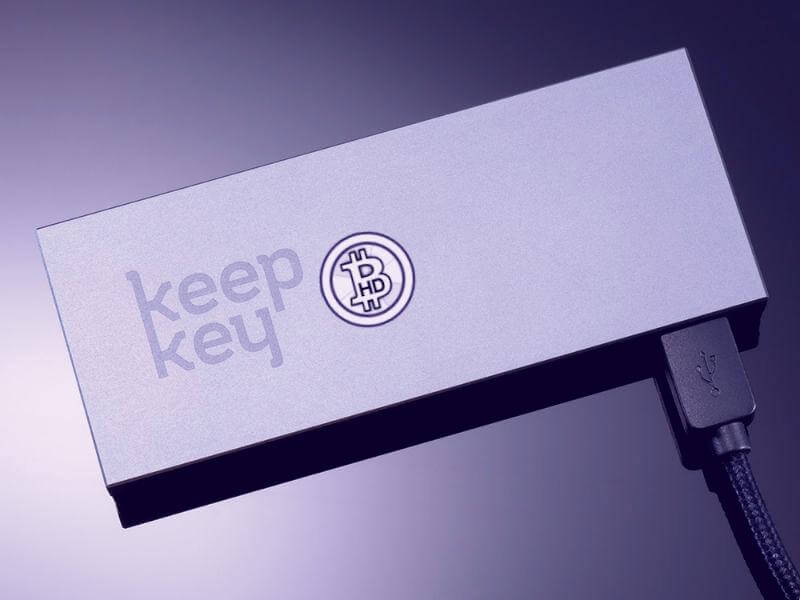
Cold storage is a must have for those looking to safely secure bitcoin. Originally, this involved less convenient processes such as storing private keys on a permanently offline computer, or more risky options such as storing keys on paper. Over the past few years, there’s been a gradual trickle of secure hardware wallets hitting the market, simplifying and making the way we store cryptocurrencies more secure.
One of the latest additions to the hardware wallet market is Keepkey, a sleek black box which prides itself on its simplicity and supports a variety of altcoins, unlike some competitors. Last week the company announced their first M&A deal, acquiring popular software wallet, Multibit in a deal paid for entirely Bitcoin. We caught up with CEO Darin Stanchfield to discuss the deal and how important security is for adoption.
Oliver Carding: Congratulations on the acquisition of Multibit. Can you give us some information about how the deal happened?
Darrin Stanchfield: We have worked with Multibit since we launched the product last September, we’ve always loved their product and began to talk internally about a way to bring it into the company, so we pitched them an idea about a month ago, they seemed interested and it made a lot of sense for both parties. It was a really quick deal, both in the decision and transition.
Oliver Carding: How do you feel that the acquisition strengthens your proposition against other hardware wallet providers?
Darrin Stanchfield: When you buy a hardware wallet you have to hold enough funds to really justify the purchase. Currently, there’s a lot of “Bitcoiners” who don’t own enough yet as they are just getting into it, so instead they download a wallet for their computer. We wanted to help those people as they are the type of user that will eventually transition to needing a hardware wallet. I think in time you’ll see our competitors do something very similar.
Oliver Carding: With popularity increasing for Ethereum. Do you have any plans to add support?
Darrin Stanchfield: There is a huge demand for Ethereum and we get asked this a lot. Ethereum developers recently reached out to us, so we helped them by supplying them with the resources needed to integrate this into our client. Work has been advancing and this should be ready in a month or two.
Oliver Carding: Aside from security, what other factors do you think are a hindrance for mainstream adoption?
Darrin Stanchfield: I think people still find it difficult to actually buy bitcoin. A lot of our customers get the device and then ask us how to actually get more bitcoin for it. Others find our phone number online and call us thinking we have sell bitcoin and we then refer them to Coinbase or Local Bitcoins, so I see that as a hindrance, however, I think that the hindrances that do exist are just temporary.
Oliver Carding: Paypal recently filed a patent for a modular payment system, do you think eventually we will see more mainstream providers offering hardware wallets to secure their finances?
Darrin Stanchfield: It’s so hard to say, typically in Western finance you have a custodian and I think that the early Bitcoin services really followed that strategy because it’s the norm but I think that the long-term promise is that you don’t need a counterparty for transactions. I think that eventually you’ll see more hardware, more of the approach we are taking so that you are the controller of your keys and your assets are decentralised and not at any one location.
Thanks to Darrin for the interview and stay tuned for our review of Keepkey, due to go live in the next week. You can find out more about Keepkey here

